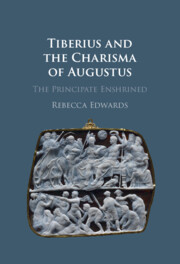This article takes as its starting point the frequency with which Ovid refers to his earlier works in his Tristia and Epistulae ex Ponto. Alongside his treatment of the Metamorphoses in the exile poetry, it is suggested that Ovid refers, on a number of occasions, to his Fasti and the progress he is making on it. He does so by using the incipit of his calendar poem, Tempora; this term is sometimes combined with signa (‘stars’), which are also mentioned in the opening couplet of the Fasti. It is proposed that Ovid's attitude toward his Fasti changes over the course of his exile, during which time he is, at various junctures, editing his calendar, and that some of these changes are discernible in the exile poetry; they result in part from his entertaining the possibility of using his Fasti as leverage in securing a mitigation of his punishment. Poems discussed in detail are Tristia 1.1, 1.7, 2.547–52, 5.3; Epistulae ex Ponto 2.1, 4.8.
